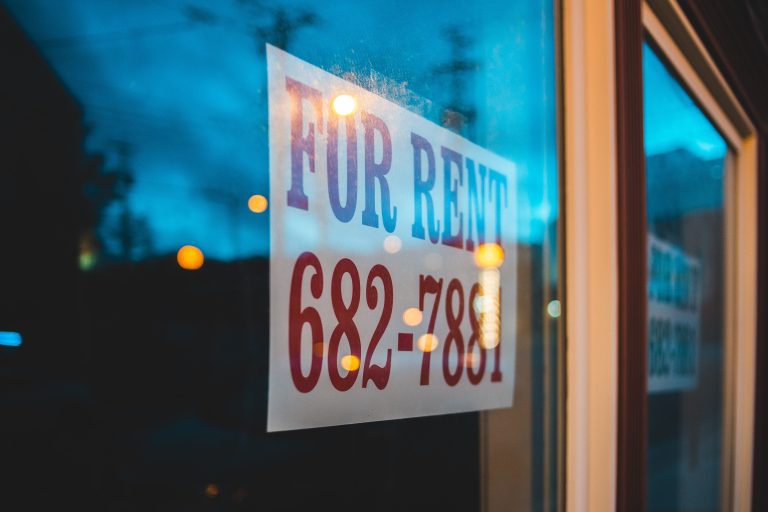Top Causes of Delayed Real Estate Transactions
One of the most frustrating aspects of real estate is the time it can take from the beginning of a transaction to the end, and that is not counting the time spent searching for the right house to buy or waiting for the perfect buyer for your sale. It makes sense considering all the moving pieces and people involved in the transaction, but that should not mean every transaction needs to take forever. There are a few key areas where most of the excessive delays to an already lengthy process occur, and we are going to look at how:
Lawyers & Contracts
Depending on what state you are doing business in, this one can be higher or lower on the list of delays. Certain states require a lawyer for real estate transactions, which means both the buyer and seller have their own attorneys. Generally, the seller’s attorney creates a contract once an offer is accepted. They then forward it to the buyer’s attorney who reviews it with their client, often making numerous small changes to the wording in the contract. Sometimes these changes are valid and necessary to protect the buyer, but other times, it is nothing more than a lawyer trying to prove their value by making trivial adjustments that accomplish nothing more than frustrating people. Then, if a mortgage is involved, a bank will have its own attorney involved, bringing the total needed to coordinate for a closing up to three.
There is a saying in New York real estate: Lawyers kill deals. And unfortunately, it is true as often as it is not. No one is trying to say all lawyers are bad, but there are many who have a reputation for being difficult to deal with. The best way to make sure you don’t get stuck in this type of situation is to be knowledgeable and ask questions. First, ensure your lawyer of choice specializes in real estate. No two areas of law are created equal, and contract lawyers and corporate lawyers will only get you so far. Next, ask them how many real estate transactions they have completed in the past. Then, ask them to review the wording in your contract with you. Question anything that doesn’t make sense.
Remember, the best time to switch lawyers is before contracts get signed.
Inspection
The onus of ensuring an inspection does not become a major source of delay falls on the buyer and their real estate agent. Too many times buyers spend months looking for a house without thinking about the home inspection until the right time comes. In a hot market, home inspectors will be highly in demand and sometimes booked a week or more out. Telling a prospective seller that you need that long before contracts can go out will not sit well with most and is a sure way to cost you leverage in negotiating.
As soon as you have decided purchasing a home is on the horizon, start building your team of professionals so they are ready to go when the time is right. Make sure to have more than one option for each category just to be sure there is a backup for your first choice if they are not available when you need them most. Good real estate agents will also have several inspectors they can refer you to. And don’t worry, the inspector works for you and not the agent, meaning they will not just tell you what you want to hear to get a deal closed. There is far too much liability in what they do.
Banks
Anytime you are dealing with borrowing money, expect the lender to have a thorough and lengthy process for verifying all information along the way to ensure you are not a risk of defaulting on the loan. The process starts with you providing a truckload of financial information, which means you also have some control over how quickly they get to work. Have a file ready with your last two years’ tax returns and W-2s, 60-days of recent paystubs, and bank statements proving you have the necessary funds for a down payment and copies of your driver’s license and social security card. You will need this to get your pre-approval anyway, but keeping it organized and current will avoid having to scramble for something later.
Once the file has gone into underwriting, the need for more documentation may arise. Do yourself a favor and skip asking questions or protesting – provide what is asked for. The chances of winning the argument are slim to none and will only cost you time. The bank will also need an appraisal, which is dependent on a third-party vendor they cannot control. But they can control the review of it and sometimes do not actively look for these reports on a daily basis, so you or your agent should be in regular contact with the loan officer to see if there were any updates. And the same goes for the title insurance report your lawyer will order. The bank needs to get this in order to get you to the closing table so it is best not to assume all parties are speaking to each other – unless you have a rockstar real estate agent who knows how to coordinate everyone and everything (like us)!
Agents
This one may sound a little counterintuitive since real estate agents work on commission and want to get paid as soon as possible, but unfortunately, it happens – and it’s not usually on purpose. As a real estate broker, I can safely say at least fifty percent of the licensed agents I’ve met are in the wrong line of work. The barrier to entry is too easy and training and development across companies lacks structure and uniformity. Too many agents think their job is only to open doors for buyers and submit offers or to take pictures for sellers, schedule open houses, and sit back and wait for a paycheck. But nothing could be further from the truth.
Good real estate agents need to be master communicators and incredibly well-organized. Even though the process can be slow with periods when nothing of substance happens, they should still be in regular contact with the agent representing the other party, your lawyer, the inspector, the appraiser, and even your loan officer. It is their job to coordinate all phases of the transaction and ensure that signed contracts make it from the lawyer to the banker, that the appraiser gains access to the house and submits his report, and that the title has come back and made its way to the bank, and numerous other items that can come up on a case by case basis. But real estate agents don’t have “bosses” in the traditional sense so there is no one staying on top of them to do all this work – which is why you have to step in and play the role of boss when you have an agent who is too laid back.
HOA/Boards
If you purchase a co-op, condominium, or a home in a private community, there is likely to be a Home Owners Association (HOA) and/or Board of Managers. These entities can slow down a transaction due to the power they have over who can purchase in the building or community and what rules they must abide by to do so. An HOA may require all houses to be painted a similar color or govern what modifications can be made to the property. If a seller has violated any of those rules they can step in and prevent the sale from proceeding until the conditions are corrected.
Thankfully, most people outside the New York metropolitan area will never have to deal with a co-op board approval. But given the population in this area and the number of cooperative properties on the market, it is an elephant in the room that needs to be addressed. I’ve never met an agent who likes working on co-op deals because of the scrutiny involved. Even though you have the money for the down payment and stellar credit, and the bank has approved you for the loan, a co-op board does not have to approve your application. They require a formal interview to see if you would be a “good fit” with the other owners and generally impose even more stringent financial requirements than banks. These are always the lengthiest transactions to close.
Title Issues
We mentioned title insurance earlier, so now we will explain what it is and why it can slow the transaction down. Title insurance protects the buyer and the bank from any potential losses down the road. It verifies that the person selling the property is the lawful owner, states property line boundaries, and confirms there is a valid Certificate of Occupancy (CO) in place, amongst other things. Those three are the ones that can cause the most severe delays, though.
If a title report uncovers a mismatch between the names listed on the property deed and the sales contract, the seller must correct it before closing. Depending on how significant the discrepancy is can determine just how long the delay is. Should a property line issue arise, it could lead to the need for a property survey, which not only could take weeks or longer but will cost money as well. And the CO issue is one that we see happen all the time. A homeowner has been there forever and over time made substantial improvements to their property (often without a permit) and no one knows until the title report comes back stating the 4BR 2BA house you are buying is actually listed as a 3BR 1BA because permits were never filed for the additions. This usually requires permits to be obtained after the fact, another lengthy and costly process, for the house to be returned to its original state, or for the deal to die completely.
Moving Dates
By far the least common but still worth noting because it does happen. If you are selling a home, it’s always good to know if the potential buyer also needs to sell a home before moving in. Knowing how long the process is and all the ways it can get delayed, you can see where there is double the risk of an issue when someone is involved in simultaneous transactions. For the same reasons, when you are buying a home it is important to know if the seller already has a place to move, if they are in the process of buying simultaneously, or if they have not even found a home yet and might be crashing at their kids’ houses. Most real estate contracts (at least in NY) allow for an automatic extension of the closing deadline by 30-days with no penalty, and when someone is experiencing uncertainty with their living situation they will take full advantage of it, leaving you with no recourse.
The moral of the story is not to be afraid and prepare for the worst when entering into a real estate transaction. It is more of a push to be prepared and do your own research. Surround yourself with experts in every area of the process to support you and make it as seamless as possible. If (or when) something doesn’t go as planned – don’t panic. Nothing is ever the end of the world. A little patience and a reminder of why you are buying or selling in the first place will help keep you calm.








